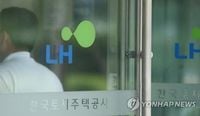On April 23, 2025, the Korea Land and Housing Corporation (LH) faced a significant data breach when it accidentally exposed a file containing the personal information of 374 applicants for a national rental housing program. The incident occurred around 6 PM, as LH published a list of document submission targets for the Asan Tangjeong 2 A15BL national rental housing pre-occupancy on its official website, LH Subscription Plus.
The leaked file included sensitive information such as names, phone numbers, application rankings, scores, and even details about the applicants' children and disability status. This information was accessible not only to the applicants but to any user visiting the LH website, raising serious concerns about privacy and security.
In a statement following the breach, LH acknowledged that the exposure was due to an error by a staff member. They expressed their commitment to preventing future incidents by tightening internal regulations and procedures. "We will send apology letters to the victims and are planning disciplinary actions against the responsible parties," an LH official stated.
The rapid dissemination of this information through social media and online communities has amplified fears regarding the potential misuse of the leaked data. Many users had already downloaded the file before it was removed, prompting widespread criticism of LH's handling of sensitive information. One concerned netizen remarked, "If this were in the United States, it would lead to lawsuits worth billions due to the data breach."
This incident is not an isolated case for LH. In November 2022, the corporation mistakenly sent emails to applicants for youth jeonse rental housing, revealing personal details such as names, resident registration numbers, addresses, and income information to other applicants. Two victims of that breach sought mediation through the Personal Information Dispute Mediation Committee, highlighting ongoing issues with LH's data management.
Experts have voiced their concerns about the implications of this latest breach. Professor Hwang Seok-jin from Dongguk University warned that the leaked information could be exploited for malicious activities, such as voice phishing. He emphasized the need for government agencies to enhance their security measures to restore public trust.
As the fallout from this incident continues, many applicants have expressed their frustration. One applicant shared their dismay, stating, "I can't believe that my personal information is now out there for hundreds of people to access. It's incredibly upsetting that we haven't even received a notification about this breach yet." This sentiment reflects a growing dissatisfaction with LH's approach to managing sensitive data.
In response to the public outcry, LH has promised to implement comprehensive measures to prevent such breaches in the future. However, skepticism remains among the public, as this is not the first time LH has faced scrutiny over its data protection practices. In 2015, the corporation exposed an Excel file containing personal information of 5,113 senior employee applicants, which included names, gender, age, addresses, and phone numbers. This file was also accessible through a simple Google search, illustrating a pattern of negligence in handling personal data.
The recent breach has reignited discussions about the adequacy of data protection laws in South Korea and the responsibilities of public agencies in safeguarding personal information. Critics argue that the current measures are insufficient to protect citizens' data from unauthorized access and misuse.
As the investigation into the breach unfolds, LH is under pressure to not only address the immediate concerns of the affected applicants but also to overhaul its data management practices to prevent future incidents. The public's trust in LH has been shaken, and the corporation must take decisive action to rebuild that trust.
In conclusion, the LH data breach serves as a stark reminder of the vulnerabilities faced by organizations handling sensitive personal information. As technology evolves, so too must the strategies employed to protect citizens' data. The ongoing scrutiny of LH's practices highlights the critical need for robust data protection measures in public institutions.

